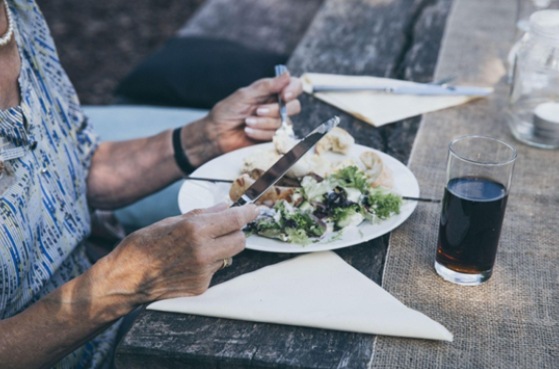Many people think that you no longer have to worry about your diet once you reach a certain age. However, this could not be further from the truth. The elderly need as much care and attention regarding their eating as anyone else. In fact, there are some specific nutrients that they need to stay healthy and strong. Here is a guide to nutrition for the elderly.
Table of Contents
Eating Healthy as You Age

As you age, the metabolism slows down, and you lose muscle mass. This means that you need fewer calories than you did younger. However, it does not mean that you can skimp on the nutrients. You still need to eat a variety of healthy foods to stay strong and healthy.
Fruits and vegetables are necessary for a healthy diet for the elderly. They are packed with vitamins, minerals, and antioxidants that help keep your body healthy. So aim for at least five servings of fruits and vegetables every day.
Whole grains are also crucial for a healthy diet. However, they are rich in fiber, which helps to regulate digestion. They can also help to lower cholesterol and blood sugar levels. Choose whole-grain bread, cereals, and pasta whenever possible.
Protein is an essential nutrient for the elderly. It helps to keep muscles strong and can help to prevent osteoporosis. Many protein sources include poultry, fish, beans, and tofu. Aim for at least three servings of protein every day.
Fat is vital to a healthy diet, but choosing the right fat is essential. Unsaturated fats are healthy choices, such as those found in olive oil, nuts, and seeds. Trans fats and saturated fats need to avoid.
Energy Requirements
Although the elderly need fewer calories than younger adults, they still need to ensure they are getting enough energy. This is because many elderly people are less active than when they were younger.
One way to ensure you get enough energy is to eat more frequent, smaller meals throughout the day. This can help to increase your metabolism and help your body to better absorb the nutrients from your food.
An additional way to ensure you are getting enough energy is to choose foods that are high in calories but low in fat. This includes foods like nuts, seeds, avocados, and peanut butter.
Vitamins & Minerals
There are some precise vitamins and minerals that are important for the elderly. But calcium is an essential mineral for bone health. So it can be found in dairy products, dark leafy greens, and calcium-fortified foods.
Vitamin D is another crucial vitamin for the elderly. So it helps the body to absorb calcium and can help to prevent osteoporosis. Vitamin D can be found in fatty fish, fortified milk, and certain mushrooms.
Vitamin B12 is a vital vitamin for the elderly. It keeps the nervous system healthy and helps to prevent memory loss. Vitamin B12 can be found in poultry, fish, meat, and eggs.
How Important is Hydration?
Hydration is vital for everyone, but it is crucial for the elderly. This is because many elderly people are less active and may not feel thirsty even when dehydrated.
It is significant to ensure that you are drinking enough fluids throughout the day. Aim for 6-8 glasses of water or other fluids every day.
If you are not able to drink 6-8 glasses of fluids every day, there are other ways to stay hydrated. Eating vegetables and fruits with a high water content can help. And, drinking juices and eating soups can also help to increase your fluid intake.
Exercising
Exercise is vital for everyone, but it is especially important for the elderly. Exercise can help to improve balance and coordination, which can help to prevent falls. It can also help to increase muscle mass and bone density.
There are many different types of exercises that are suitable for the elderly. These include walking, swimming, and Tai Chi. So it is important to find an exercise that you enjoy and that you can stick with.
Suppose you are not used to exercising, it is important to start slowly and gradually increase the intensity of your workouts. You should also talk to your doctor before starting any new exercise routine.
Eating Right for a Healthy Mind

The brain is a very important part of the body, and it needs to be healthy in order to function properly. Eating a healthy diet can help to keep the brain healthy and can help to prevent memory loss.
There are some precise nutrients that are important for the brain. These include omega-3 fatty acids, B vitamins, and antioxidants.
As we get older, it becomes even more important to eat a healthy diet. This is because our bodies become less efficient at absorbing nutrients from food. We also become more susceptible to chronic diseases, such as heart disease, diabetes, and osteoporosis.
Making sure that we are getting enough of the right nutrients can help to prevent these chronic diseases and can also help to keep our bodies functioning properly.
Burwood nursing home is a great place for the elderly to get the care and attention they need. The staff are experienced and qualified to deal with the specific needs of the elderly, and they offer a wide range of services.
